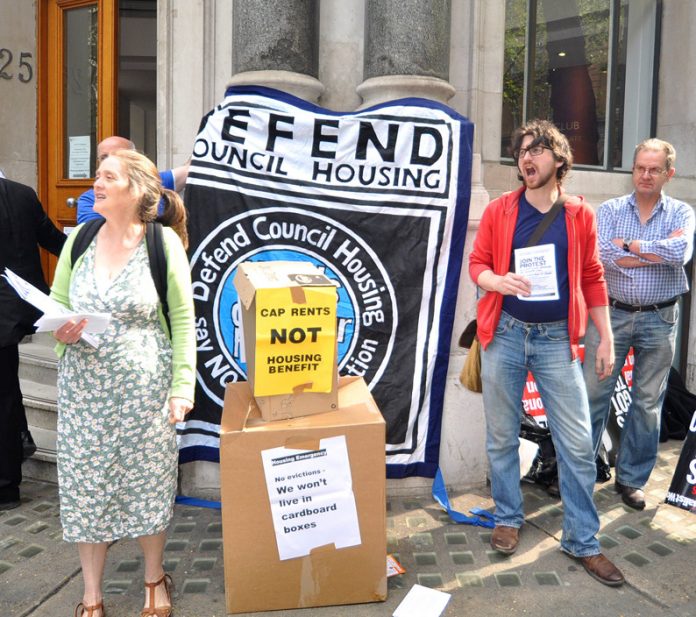HOUSING charity Shelter yesterday described the rental market as ‘out of control’ as letting group LSL revealed the average rent paid by private tenants in England and Wales reached a new record high in July, of £725 a month.
LSL said rents were rising fastest in London and the South East, with the average rent in the capital now at an astronomical £1,057 a month.
LSL, which owns the Your Move and Reeds Rains property chains, said average rents rose by one per cent last month and were 2.9 per cent higher than a year ago.
Shelter Chief executive Campbell Robb said: ‘What many forget is the devastating impact that every rent rise has on families who are forced to cut back further on food and other essentials.
‘Many will be wondering how much longer they’ll be able to stay in their home.’
The number of homes started by builders in England has also fallen again, to the lowest level for three years.
Government figures released on Thursday showed that only 21,540 new homes were started by builders in the three months to June this year.
That was a huge 24 per cent down on the same period a year ago and a ten per cent fall from the first three months of the year.
The dearth of new housing, allied to the rapidly growing population and continued rationing of mortgage funds for first-time buyers, has been a key factor behind the private landlords charging increasingly eye-wateringly high rents.
David Newnes of LSL warned: ‘The backlog of frustrated first-time buyers in the private rented sector showed no sign of clearing in July – in fact, it is still growing.
‘As lending to those without substantial deposits remains depressed, demand for rented accommodation can only go one way in the long-term, providing further upward momentum for rents.
‘The rental market is also entering its summer peak, as recent graduates and those with new jobs begin to look for new accommodation.’
With mortgage lenders now typically asking borrowers to put down a 20 per cent or 25 per cent deposit, many would-be home buyers have been in effect locked out of the home-buying market.
Figures earlier this year showed that owner occupation had fallen to 66 per cent of all households in England, which was back to the level of 1989.
Meanwhile, the proportion of households renting their homes from private or public-sector landlords has increased, to 34 per cent of households.
An unabashed Department for Communities and Local Government (DCLG) statement said: ‘Starts are now 54 per cent below their December quarter 2005 peak, but 27 per cent above the trough in the March quarter of 2009.’
Separate figures have reflected how wages have failed to keep up with the cost of buying a home in England.
In 2001, the average price of a house was £121,769 and the average salary was £16,557, according to the National Housing Federation.
A decade on, the typical price of a property is 94 per cent higher at £236,518, while average wages are up 29 per cent to £21,330.
‘Ten years ago the average amount that you would have needed for a deposit was about nine months worth of salary. Now you need three years’ worth,’ the federation’s chief executive, David Orr said.
